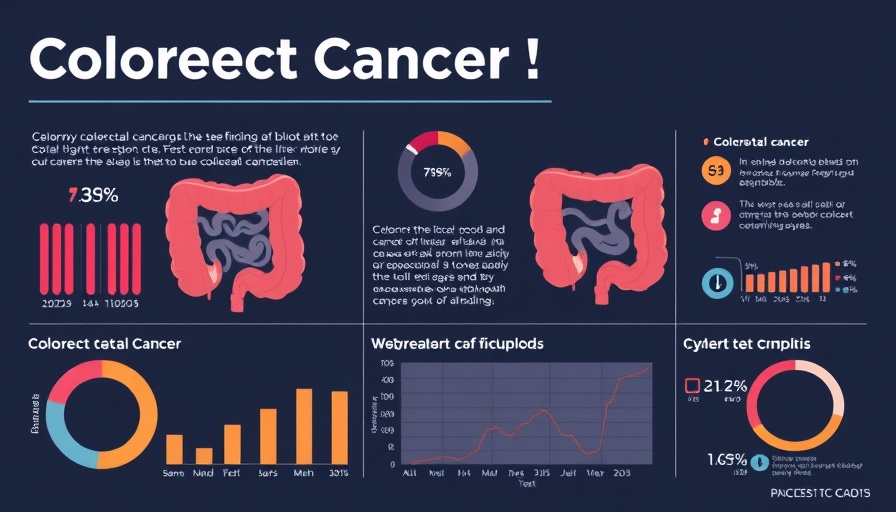
Revolutionizing Early Detection in Colorectal Cancer
In a groundbreaking advancement for healthcare, a new blood test technique promises to change the landscape of early detection for colorectal cancer, a critical area where prompt diagnosis is vital. Traditional methods often involve invasive procedures like colonoscopies, which can be uncomfortable and carry risks. However, emerging non-invasive techniques like liquid biopsies have made detection simpler and more patient-friendly.
The Mechanics of the New Blood Test
This novel blood test identifies specific biochemical markers associated with colorectal cancer, utilizing advanced algorithms and machine learning to analyze the data collected. By extracting cell-free DNA from the bloodstream, this technique enhances the possibility of early diagnosis, even before symptoms manifest. This notion resonates well within a business context, as it exemplifies the shift toward applied AI models for real-time decision-making in medical diagnostics.
Impact on Business Leaders and Healthcare Innovation
The implications of this technology stretch beyond healthcare—it represents a shift that entrepreneurs and executives must recognize. With the evolution of self-learning infrastructures and machine-led growth, healthcare offers fertile ground for smart scale systems. Professionals should consider how innovations like these can be integrated into broader operational strategies, particularly with a focus on edge computing and zero-trust security.
Addressing the Challenges of Implementation
Despite the promise of this technique, challenges remain. Adoption hurdles such as regulatory approvals, funding for development, and ensuring broad access in various healthcare settings will test leaders in both health and tech domains. Discussions surrounding foundational infrastructure must occur. What frameworks will support this change, and how can businesses align themselves with systems that promote equitable access?
Future of Colorectal Cancer Screening
As data-driven approaches gain traction, we should anticipate shifts in the entire diagnostic ecosystem. The integration of quantum-inspired algorithms within these diagnostic protocols can enhance accuracy. Business leaders should remain flexible and adaptive, preparing their tech stack evolution to incorporate these emergent technologies to drive both operational efficiency and patient care.
What Leaders Should Know
The future of healthcare diagnostics is entwined with technological advancements. This is where CTOs and other leaders can leverage technology-driven discovery to facilitate better patient outcomes. By understanding how automotive decision-making can scale provisions of care, leaders are positioned uniquely to craft solutions that merge health tech with business analytics.
Call to Action
In light of these innovations, executives must engage in strategic conversations about integrating these advancements into their respective ecosystems. Bridges must be built between clinical insights and business strategies to ensure holistic growth. Explore these avenues, and consider how you can foster disruption in your own organization while contributing to the fight against cancer.
 Add Row
Add Row  Add
Add 


Write A Comment